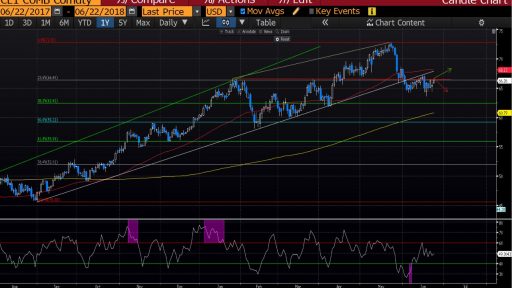- Home
- >
- Commodities Daily Forecasts
- >
- What to expect from WTI, after the OPEC+ decision to rise oil output

What to expect from WTI, after the OPEC+ decision to rise oil output

OPEC+ reached a preliminary agreement in the face of strong opposition from Iran. Through the agreement the organization aims to increase the yield by 1m bpd, but commodity analysts are of the opinion that this will not be the case as a large number of producer countries are unable to increase yields.
"One million barrels a day is nominal, the real effect will be less, because not every country can respond," Saudi Arabian Energy Minister Khalid Al-Falih said. "What will actually reach the market will be less than 1m bpd."
The real increase in yield will be around 600,000 bpd, mainly due to the OPEC countries in an economic crisis like Venezuela. Outside OPEC, Mexico will hardly be able to increase extraction dramatically, says a delegate well aware of the figures in the cartel.
Later today, the organization must ratify its agreement despite Iran's disagreement. The probability of quitting yesterday's agreement is minimal, as cartel meetings seldom deviate from preliminary agreements.
What follows from now on?
The market reaction is calm for now, suggesting that OPEC's decision is likely to have accumulated in the price of the latest downward wave since May 22. The price collapsed by more than 12%, breaking the main trend and moving below a key level of support, formed by a basic horizon, the diagonal of the 50SMA main trend and 23.6% Fibonacci's upward trend correction starting at $45 a barrel. The technical options for the subsequent development are two. If the price passes above the resistance zone, the positive moods may return and then the peak test seems the most likely scenario. If the price stays below the resistance zone, it is more likely to see a decrease or consolidation between $62 and $67 per barrel.
Given the weak reaction of traders, I expect the price to stay at current levels, while producing countries experiencing difficulties with the increase in yields will not stabilize.
Source: Bloomberg Terminal
Chart: Used with permission of Bloomberg Finance L.P.
 Trader Petar Milanov
Trader Petar Milanov Read more:
If you think, we can improve that section,
please comment. Your oppinion is imortant for us.











